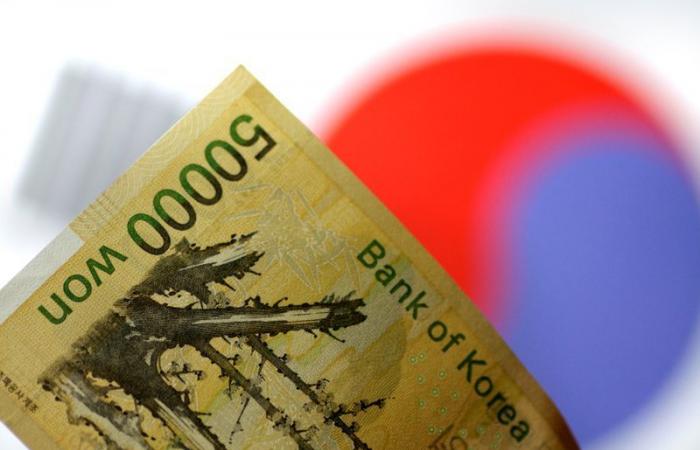A preview of the day ahead in Asian markets.
The sudden explosion of political chaos in South Korea has put Asian investors on the defensive, which suggests a cautious opening of markets on the continent on Wednesday, despite the good performance of Wall Street the day before.
South Korean President Yoon Suk Yeol declared martial law Tuesday to counter “anti-state forces” among his opponents, creating the most serious challenge to the country's democracy since the 1980s, before lifting it hours later after lawmakers rejected the measure and protesters gathered outside parliament.
The initial statement had an immediate impact on the won, which fell to a two-year low against the dollar. At one point, it lost 2% and was poised for its biggest single-day loss since November 9, 2016, the day after the 2016 U.S. election that brought Donald Trump to power and began to make turning the clock on a looming trade war with China.
This cemented the won's unwanted status as the worst-performing major Asian currency against the dollar this year, bringing its year-to-date losses to almost 10%. The benchmark Kospi is also one of the worst-performing stock indexes in Asia this year, down almost 6% year-to-date as of Tuesday's close.
Mr. Yoon's about-face, however, appears to have restored calm. The won is still weaker, but has regained more than half of the losses it suffered earlier in the day Tuesday. Kospi futures traded on the Eurex exchange are forecasting a decline of just 0.3% at the opening of trading in Seoul.
Elsewhere in Asia, the Indian rupee is at an all-time low, while the Chinese yuan is at a 13-month low and looks set to fall below 7.30 to the dollar, with traders speculating on the is causing Beijing to let it slide as trade tensions with Washington intensify.
China on Tuesday announced a ban on exports of “dual-use goods” related to key minerals gallium, germanium, antimony and super-hard materials to the United States. The announcement came 24 hours after the United States launched a third crackdown in three years against China's semiconductor industry, cutting exports from 140 companies.
If the volatility of the main assets in Asia is intensifying, that of the American market is currently rather moderate. The VIX fear index hit its lowest level since July on Tuesday, and the MOVE index of implied volatility for U.S. Treasuries has fallen since the U.S. presidential election to its lowest level in two months.
Wednesday's Asian calendar sees the release of Australian GDP, Thai inflation and a series of purchasing managers' indices for November, including China's Caixin Services PMI.
The Australian economy is expected to have grown at a rate of 0.4% in the July-September period, twice the rate of the previous quarter, and at a rate of 1.1% year-on-year, representing a slight increase from the 1.0% annual growth recorded in the second quarter.
Here are the main developments that could steer the markets on Wednesday:
– Reaction to political instability in South Korea
– Australia GDP (Q3)
– PMI, including China's “unofficial” services (November)






